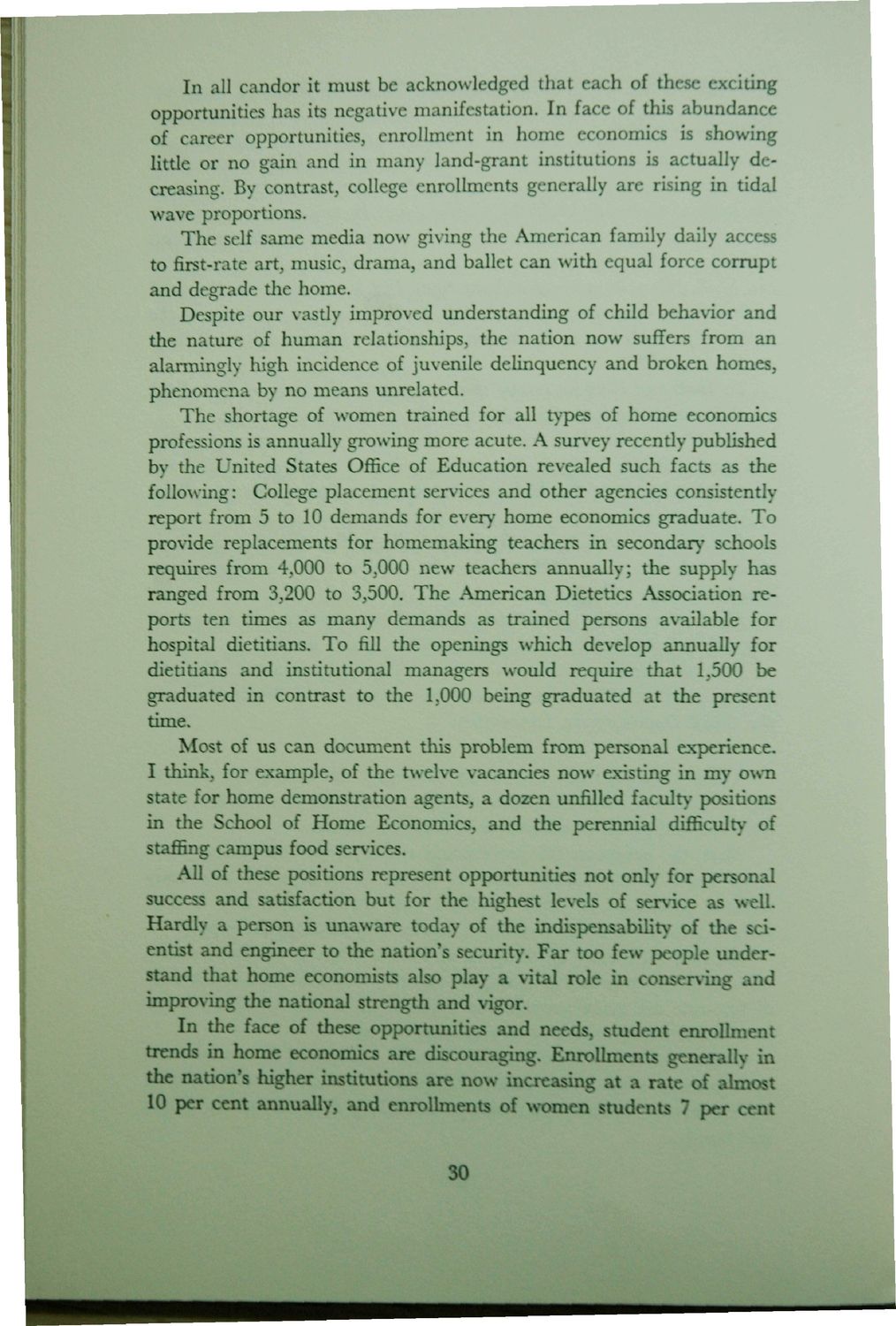| |
| |
Caption: Dedication - Home Economics - Challenge of Home Economics
This is a reduced-resolution page image for fast online browsing.

EXTRACTED TEXT FROM PAGE:
In all candor it must be acknowledged that each of these exciting opportunities has its negative manifestation. In face of this abundance of career opportunities, enrollment in home economics is showing little or no gain and in many land-grant institutions is actually decreasing. By contrast, college enrollments generally are rising in tidal wave proportions. The self same media now giving the American family daily access to first-rate art, music, drama, and ballet can with equal force corrupt and degrade the home. Despite our vastly improved understanding of child behavior and the nature of human relationships, the nation now suffers from an alarmingly high incidence of juvenile delinquency and broken homes, phenomena by no means unrelated. The shortage of women trained for all types of home economics professions is annually growing more acute. A survey recently published by the United States Office of Education revealed such facts as the following: College placement services and other agencies consistently report from 5 to 10 demands for every home economics graduate. To provide replacements for homemaking teachers in secondary schools requires from 4,000 to 5,000 new teachers annually; the supply has ranged from 3,200 to 3,500, The American Dietetics Association reports ten times as many demands as trained persons available for hospital dietitians. To fill the openings which develop annually for dietitians and institutional managers would require that 1,500 be graduated in contrast to the 1,000 being graduated at the present time. Most of us can document this problem from personal experience. I think, for example, of the twelve vacancies now existing in my own state for home demonstration agents, a dozen unfilled faculty positions in the School of Home Economics, and the perennial difficulty of staffing campus food services. All of these positions represent opportunities not only for personal success and satisfaction but for the highest levels of service as well. Hardly a person is unaware today of the indispensability of the scientist and engineer to the nation's security. Far too few people understand that home economists also play a vital role in conserving and improving the national strength and vigor. In the face of these opportunities and needs, student enrollment trends in home economics are discouraging. Enrollments generally in the nation's higher institutions are now increasing at a rate of almost 10 per cent annually, and enrollments of women students 7 per cent 30
| |